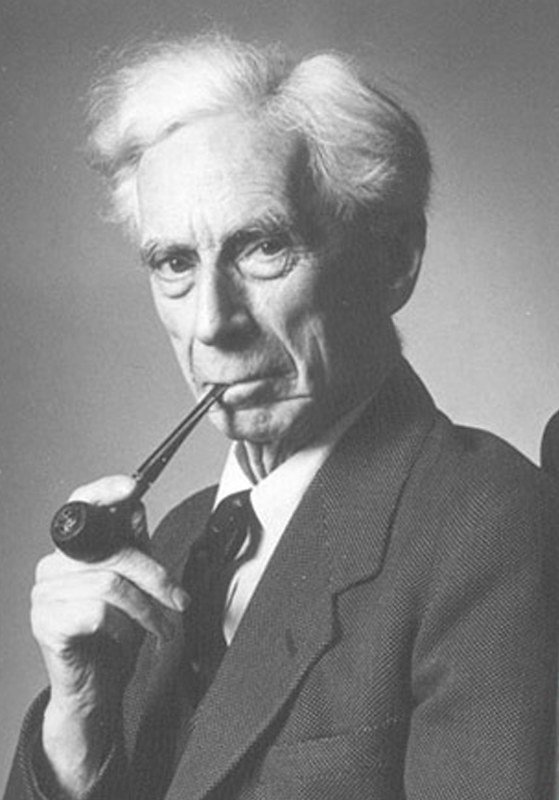Why We’re Unhappy: Bertrand Russell’s 8 Timeless Lessons
Russell’s century-old advice on how to overcome unhappiness is incredibly relevant today. Photo by Gabe Pierce on Unsplash.
Reading time: 7 minutes
Quick answer: Russell argues that everyday unhappiness usually comes from turning inward—obsessing over status, envy, anxiety, guilt, boredom, and what others think. His cure is surprisingly practical: build interests outside yourself, reduce comparison, and choose work and relationships that pull attention outward.
What you’ll get in this article
✔ Russell’s 8 causes of everyday unhappiness (simple, modern language)
✔ A one-line “how to fix it” takeaway for each
✔ Why boredom and envy quietly sabotage contentment
✔ A quick self-check to spot your top 2 drivers
TL;DR — Russell on unhappiness
🧠 Unhappiness grows when life becomes too self-focused
🏁 Competition + comparison create endless dissatisfaction
📱 Modern life makes boredom feel intolerable
😰 Worry, guilt, and fear of opinion drain peace
🔁 The cure: outward attention—work, relationships, curiosity, service
How to use this article: As you read, notice which causes trigger recognition rather than agreement. Russell’s insight is diagnostic first—once you spot your dominant drivers (often just one or two), the fixes become surprisingly concrete.
Scope note: This post is about everyday unhappiness (restlessness, dissatisfaction, low-grade anxiety)—not clinical depression or acute crisis. If you’re experiencing the latter please consult with a medical professional.
Why We Feel Unhappy Even When Life Looks Good
Why are so many of us unhappy—even when life seems comfortable, stable, and successful on paper?
In this article, I summarize the 8 causes of everyday unhappiness identified by Bertrand Russell in his 1930 classic The Conquest of Happiness, translate them into modern life (status pressure, social media, nervous fatigue), and distill each into a simple, practical takeaway. Russell’s diagnosis is surprisingly contemporary: much of our unhappiness comes from excessive self-focus—amplified by comparison, anxiety, boredom, guilt, and fear of judgment.
At the core of The Conquest of Happiness, Russell argues that happiness is found by directing attention outward—toward meaningful work, relationships, curiosity, and shared pursuits—and is lost when attention turns inward toward constant self-evaluation and worry. What’s striking is how little this insight has aged. Whether we look to Russell, the Stoics, or other thinkers across history, the same psychological traps keep resurfacing—and so do the remedies.
The good news is that these patterns are understandable and, to a large extent, adjustable. Russell didn’t write this book to sound profound; he wrote it to be useful. His ideas are practical, unsentimental, and aimed at people who already have the basics of life in place but still feel oddly dissatisfied.
A quick self-check before we begin: If you had to pick two that feel most familiar right now—envy, boredom, worry, guilt, social comparison, fear of opinion, feeling “targeted,” or nervous fatigue—which would they be? Keep them in mind as you read Russell’s diagnosis and advice below.
8 Causes of Unhappiness Bertrand Russell Warned Us About
Too much self-centeredness can be an obstacle for happiness and for leading a good life. Photo by Ruben Valenzuela on Unsplash.
1. Excessive Preoccupation With Oneself and Its Negative Impact on Mental Well-being
Russell identifies three primary personality prototypes that most people align with to some extent: the sinner, the narcissist, and the megalomaniac. The sinner is not meant in a literal sense, but as someone who is continuously incurring in his or her own disapproval—there is a continuous conflict between the image of herself as she thinks she ought to be and the knowledge of herself as she is.
Sometimes it is something deep-rooted in the subconscious, and may originate from still accepting the prohibitions and moral code she was taught in infancy. Liberation from these early beliefs is the first, necessary step towards happiness. These deep-rooted beliefs can be a hidden cause of unhappiness—even when everything in life seems “fine” on the surface.
In contrast, the narcissist incurs in the habit of admiring himself and of wishing to be admired. The problem here is that when vanity is carried too far there is no genuine interest in others, and therefore no real satisfaction to be obtained from love. Since human nature is never completely self-centered, the narcissist is artificially limiting himself. The cure, according to Russell, is to build genuine self-respect—something that grows through engaging in meaningful work or activities driven by interests beyond oneself.
Finally, the megalomaniac wishes to be powerful rather than charming, and seeks to be feared rather than loved. The megalomaniac, whether insane or sane, is usually the product of some excessive humiliation in the past. Although power kept within reasonable bounds may add to happiness, when it is the sole end of life it only leads to disaster.
Of course, most of us won’t fall neatly into one of these prototypes, but we likely lean more toward one than the others. Personally, I see myself leaning toward the “sinner” category—often stuck in cycles of self-criticism. Russell believes this stems from moral codes absorbed in childhood. Becoming aware of these inherited scripts is the first step. From there, showing ourselves more kindness and accepting our imperfections can help ease self-judgment and open the door to greater happiness.
One-line takeaway: Shift attention from self-evaluation to shared work, curiosity, or service—self-respect grows outward, not through constant self-monitoring.
2. Competition, Status, and the Fear of Falling Behind
One of the key factors limiting happiness in many individuals is their perceived “struggle for life”. What people mean though is not that they are busy in the struggle for life, but in the struggle for success. In other words, what people ultimately fear is not that they will fail to get food on the table or a roof over their heads, but that they will fail to outshine their neighbours or peers. As long as a person is persuaded that it is his duty to pursue success—and that not doing so is a sign of a wretched soul—his life will remain excessively concentrated and too anxious to experience any degree of happiness.
It’s true that for those who experience some degree of success it is certainly easier to enjoy life, but we should keep in mind that success is only one ingredient in happiness, and it is foolish and counterproductive to sacrifice all other ingredients in order to pursue one of them. Instead, Russell argues that money should be a tool for buying peace of mind, freedom, financial security, and leisure.
This is one reason Financial Independence appeals to me: it’s not about winning a status game—it’s about buying back time, lowering anxiety, and choosing work for meaning rather than optics. Seen through Russell’s lens, FI works best not as an escape from life—but as a way to reduce status pressure so attention can flow outward again.
Unfortunately, it’s not only work that is poisoned by the philosophy of competition, but leisure is affected just as much. According to Russell, leisure that is quiet and restoring to the nerves is essential for humans yet is seen today as boring. The cure lies in admitting the importance of a sane and quiet enjoyment as part of a balanced life.
One-line takeaway: Use money and success to buy peace of mind and time—not approval or rank—because status games have no finish line.
The roller coaster of life. According. toRussell, a life that is too full of excitement can be an exhausting life. Photo by Matt Bowden on Unsplash.
3. Fear of Boredom and the Addiction to Stimulation
In 1930, Russell wrote that “we are less bored than our ancestors were, but we are more afraid of boredom”. This remains very relevant today, particularly in relation to the impact of social media and FOMO on modern-day unhappiness. By shining a light on what everyone else is doing in near-real time, we are permanently aware of what we could be doing, and find it difficult to enjoy the present moment.
Unfortunately, a life that is too full of excitement can be an exhausting life, where we need continually stronger stimuli to provide the thrill that has been thought to be an essential part of life. Russell argues that a certain amount of boredom is essential to a happy life, and that a quiet life is indeed a characteristic of great men of the past (e.g., Socrates, Kant, Darwin, or Marx).
Their pleasures were certainly not what would seem exciting to an outside observer. Russell suggests that “a generation that cannot endure boredom will be a generation of little men”, since they are not capable of focusing on long-term endeavors. A happy life must be to a great extent a quiet life—only in this environment can we find true joy.
One-line takeaway: Learn to tolerate quiet and mild boredom; sustained happiness depends more on depth and focus than constant excitement.
4. Nervous Fatigue: Why Modern Life Drains Us
Different forms of physical fatigue can—if not too extreme—actually become a source for happiness. Our sleep and appetite will improve, and this form of fatigue may provide zest to other pleasures. In contrast, the kind of fatigue that works against our pursuit of happiness is that of nervous fatigue.
It’s something that is very difficult to escape from, particularly today in urban environments, where everyone is constantly exposed to noise and the presence of strangers. In addition, people carry around all kinds of fears and worries that are constantly weighing on them and that limit their personal growth and their ability to experience happiness.
A lot of worries could be prevented by adopting a better philosophy of life and a little more discipline. Most people cannot stop thinking about their problems at times when no action can be taken to address them. The wise man thinks only of his problems at the right time when there is some purpose in doing so.
Another good way to diminish our worry is by reminding ourselves of the relative unimportance of the matter which is causing anxiety; after all, our successes and failures do not matter that much in the big scheme of things. Will this still matter in 5, 10, or 20 years? Will anyone else even remember it?
We should also try to rationally assess what is the realistic worst-case scenario that would occur if our fears were indeed realized; in most cases, we will find that our situation is not as grim as we thought and we may feel more relieved. Finally, Russell argues that the person who can center her thoughts upon something transcending self will find peace in the ordinary troubles of life.
One-line takeaway: Reduce nervous fatigue by limiting useless worry and thinking about problems only when action is possible.
I’m here, not you! We must overcome envy if we want to be at peace. Photo by Artem Beliaikin on Unsplash.
5. The Destructive Emotion of Envy Towards Others and How It Impacts Happiness
Envy—together with worry—is one of the most important contributors to human unhappiness, and one of the most deep-rooted human passions. Envy is a curse because instead of deriving contentment for what we have or what we’ve already achieved, we constantly look over our shoulders and derive pain from what others have.
If you want to feel happier and less stuck in envy, the first step is acknowledging the emotion and tracing where it comes from. Sitting down and analyzing the causes of one’s own envy may take us a long step towards curing ourselves from this feeling. Thankfully, there is a compensating passion to envy we can cultivate—admiration. To increase our happiness we must cultivate the admiration of others, not only of their characters but also of their successes.
Russell warns that it is impossible to escape envy by means of success alone and reminds us that those who desired glory envied Napoleon. But Napoleon envied Caesar, Caesar envied Alexander, and Alexander envied… Hercules, who never existed. We should convince ourselves that this is not a game we can win if we are trying to lead a good life.
One-line takeaway: Replace envy with admiration—learn to enjoy others’ success without turning it into a verdict on your own worth.
6. Deep-Rooted Sense of Sin and Guilt
Behind our moral conscience we can uncover different feelings. Firstly, there is the fear of being found out and social rejection. Closely linked to this is, and just as powerful, is the feeling of becoming an outcast from the herd. People tend to modulate their behavior based on how their actions may be perceived by others, not based on a rational deliberation of what is right or wrong.
There are of course evolutionary reasons of why this is the case; unfortunately, linking our peace of mind to external circumstances or agents, such as obtaining the approval of peers or neighbors, is not a recipe for fulfilment.
The sense of sin in its most important form goes even deeper, typically deep-rooted in the subconscious. We should be alert to the possibility that our “sense of sin” may originate from still accepting the prohibitions and moral code one was taught in infancy, which may or not be based on a reasonable assumptions. Liberation from these early beliefs can be the first step towards happiness for many.
One-line takeaway: Question inherited moral scripts from childhood and release guilt that no longer serves a rational or humane purpose.
Learn about persecution mania—everyone out there is not out to get you. Photo by Anthony Tran on Unsplash.
7. Persecution Thinking: ‘Everyone Is Against Me’
This is a condition that everyone suffers from, albeit to very different degrees. It refers to someone who perceives himself as the perpetual victim of ingratitude, unkindness, and treachery. As a rule, there is nothing inherently improbable about each separate story. However, if a person declares receiving universal ill-treatment, in all probability the cause lies in himself—he either imagines injuries from others or unconsciously behaves in such a way as to arouse irritation in others.
To treat this condition, Russell advises us to not expect everyone to feel towards us the tender love and profound love we may feel toward ourselves. We know that our friends and family have faults, yet we find them generally agreeable on the whole. However, we generally would find it intolerable that others may have such views of us. This double standard can quietly fuel resentment and unhappiness—recognizing it is the first step toward letting go.
Russell brings forth four maxims as preventive measures of the emergence of persecution mania: first, remember that your motives are not as altruistic as they seem to yourself, so stop looking for others’ gratitude or admiration; second, don’t overestimate your own merits; third, don’t expect others to take as much interest in you as you do yourself; finally, realize that people generally just don’t give enough thought to you to have any special desire to persecute you. If you constantly feel mistreated or misunderstood, this might be a key root cause of your unhappiness.
One-line takeaway: Assume less malice and less attention from others—most people are far less focused on you than you imagine.
Bertrand Arthur William Russell (18 May 1872 – 2 February 1970) was a British mathematician, philosopher, and public intellectual.
8. How Fear of Social Judgment Fuels Unhappiness
Most people can’t be happy unless their life and outlook on the world is approved by others, particularly by those with whom they have social relation. Generally, people who are not in harmony with the conventions of their own set tend to be irritable and lack a sense of humor. Russell argues that it is important that we all attempt to find the group of people amongst which we may flourish.
In practice, though, we can’t escape from everyone. In such cases, if we manage to show indifference to what others think, people will have doubts over their own power and tend to leave us in peace. It also helps to realize that many individuals are upset by departures from convention because they see this as a personal criticism. We can be careful in communicating that this is something that only concerns us, that we are not engaged in a criticism of others.
Fear of public opinion is one of the most common yet invisible causes of unhappiness for many people today. According to Russell, it is difficult to achieve any measure of personal growth while this fear remains in us, and it is also impossible to acquire the freedom of spirit in which true happiness can emerge. It is essential to happiness that our own way of living and outlook in life should stem from our deep impulses and not from the views of others.
One-line takeaway: Build a life guided by your own impulses and values, not by the need for approval—freedom of spirit is a prerequisite for happiness.
The Common Thread: Attention Turned Inward vs Outward
Taken together, Russell’s eight causes point to a single pattern: unhappiness grows when our attention collapses inward—toward comparison, anxiety, and self-judgment—and eases when life pulls us outward again.
You don’t need to fix everything at once. Even small shifts—less comparison, quieter leisure, more absorbing work, fewer borrowed expectations—can noticeably change how life feels day to day.
If Russell’s ideas resonated, you might enjoy how these themes show up in everyday decisions—money, work, health, and time. In this blog I share short weekly reflections on building a good life—through personal finance, health, and a calmer approach to happiness.
👉 Subscribe to The Good Life Journey (free, unsubscribe anytime)
👉 Further reading: Naval Ravikant’s 12 insights on happiness
👉 Further reading: Seneca’s 9 timeless lessons for leading a meaningful life
About the author:
Written by David, a former academic scientist with a PhD and over a decade of experience in data analysis, modeling, and market-based financial systems, including work related to carbon markets. I apply a research-driven, evidence-based approach to personal finance and FIRE, focusing on long-term investing, retirement planning, and financial decision-making under uncertainty.
This site documents my own journey toward financial independence, with related topics like work, health, and philosophy explored through a financial independence lens, as they influence saving, investing, and retirement planning decisions.
Check out other recent articles
Frequently Asked Questions (FAQs)
-
Yes. The Conquest of Happiness remains highly relevant because the psychological causes of unhappiness—envy, comparison, fear of judgment, and excessive self-focus—are the same today, and often intensified by modern life. Russell’s practical advice on shifting attention outward and reducing status anxiety still offers a clear path to greater contentment.
-
Russell highlights eight causes: self-absorption, envy, unhealthy competition, guilt, chronic fatigue, persecution mania, boredom, and fear of public opinion. These patterns, he argues, are psychological traps that can be unlearned with awareness and deliberate effort.
-
Being excessively preoccupied with oneself—our flaws, reputation, or failures—is central to Russell’s philosophy. He suggests that happiness grows when we shift focus outward through relationships, meaningful work, and a broader purpose.
-
Russell recommends examining your daily thoughts and routines. Often, unhappiness stems from chronic worry, envy, or misplaced expectations. Practicing self-awareness and redirecting attention to external interests can help restore balance.
-
Comparing yourself to others, chasing status, obsessing over success, or fearing judgment can erode joy. Russell encourages cultivating peace through moderation, meaningful activity, and detachment from others’ opinions.
-
He argues that moderate boredom is not harmful—in fact, it's necessary for reflection and long-term fulfillment. Constant excitement, by contrast, leads to overstimulation and restlessness that undermine happiness.
-
Envy diverts attention from gratitude and self-growth. Russell notes that admiration is a powerful antidote—fostering it helps us appreciate others without self-torment, opening a path to emotional freedom.
-
Russell suggests evaluating where your focus lies. If it's inward and overly analytical, try engaging more with the world—relationships, creativity, nature, or causes bigger than yourself can all bring renewed meaning.
-
Russell argues that internal habits matter far more than circumstances once basic needs are met. Envy, comparison, worry, and fear of opinion can persist even in comfort—while outward-focused habits can sustain happiness under modest conditions.
Join readers from more than 100 countries, subscribe below!
Didn't Find What You Were After? Try Searching Here For Other Topics Or Articles:




































